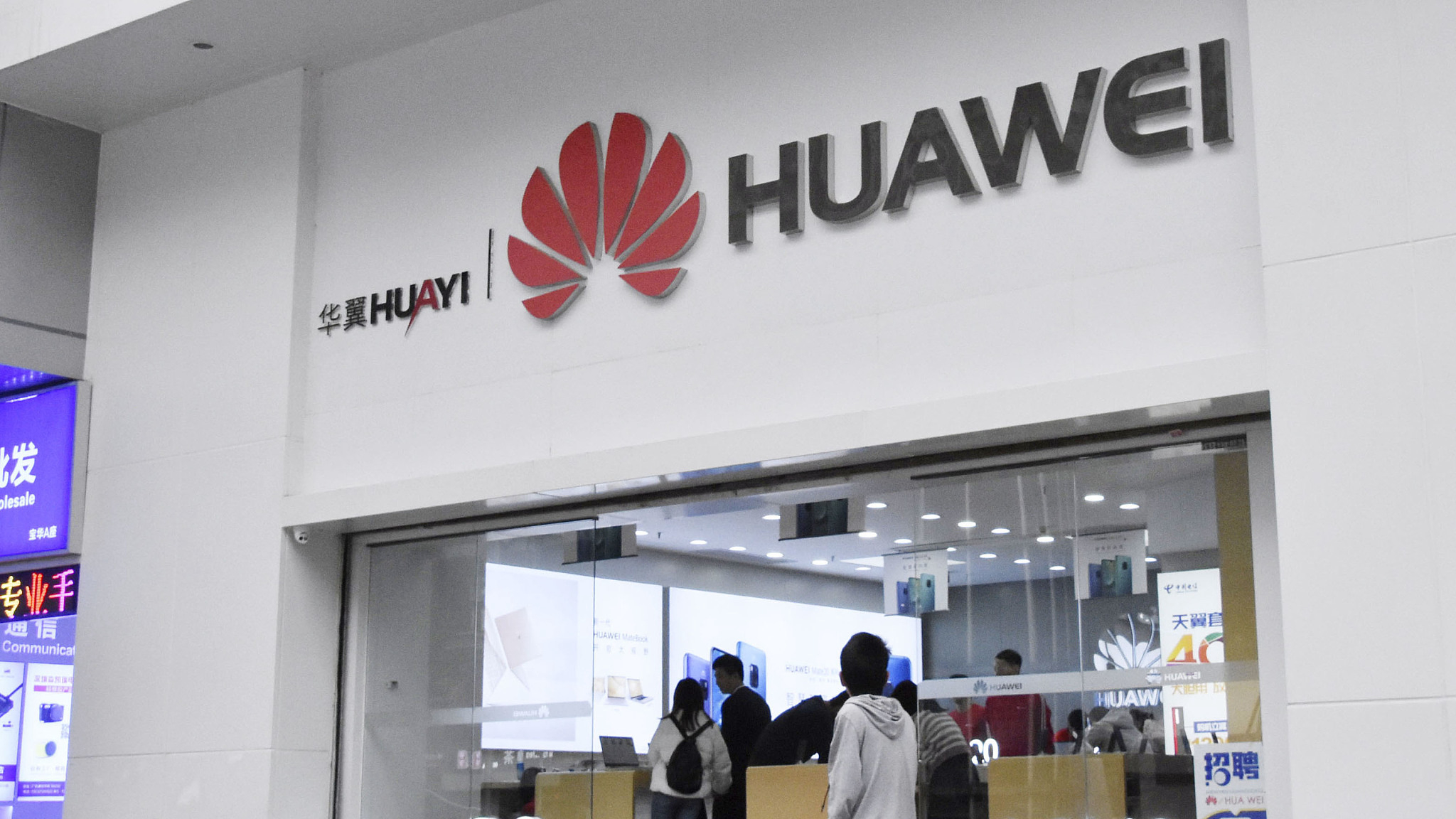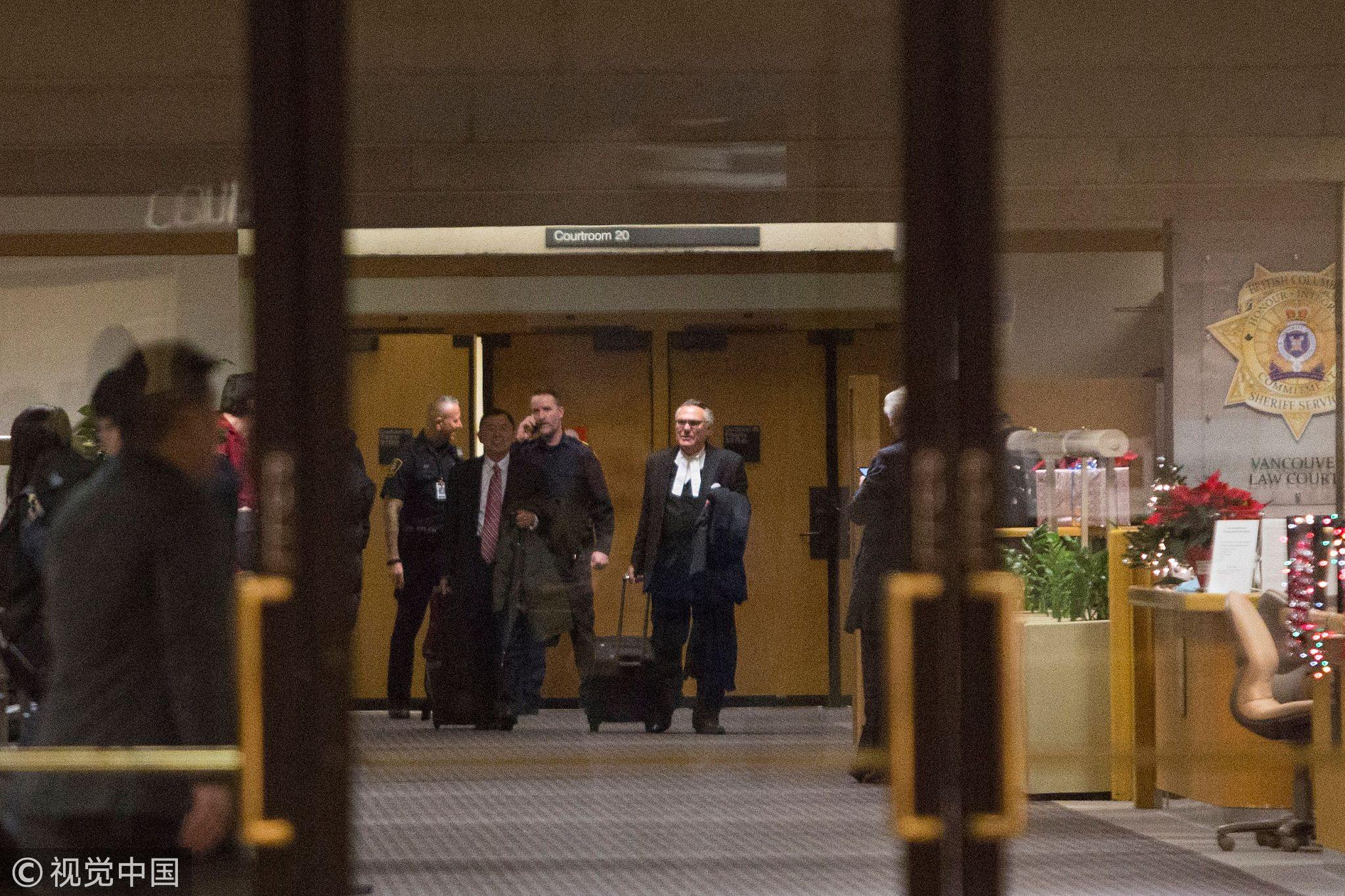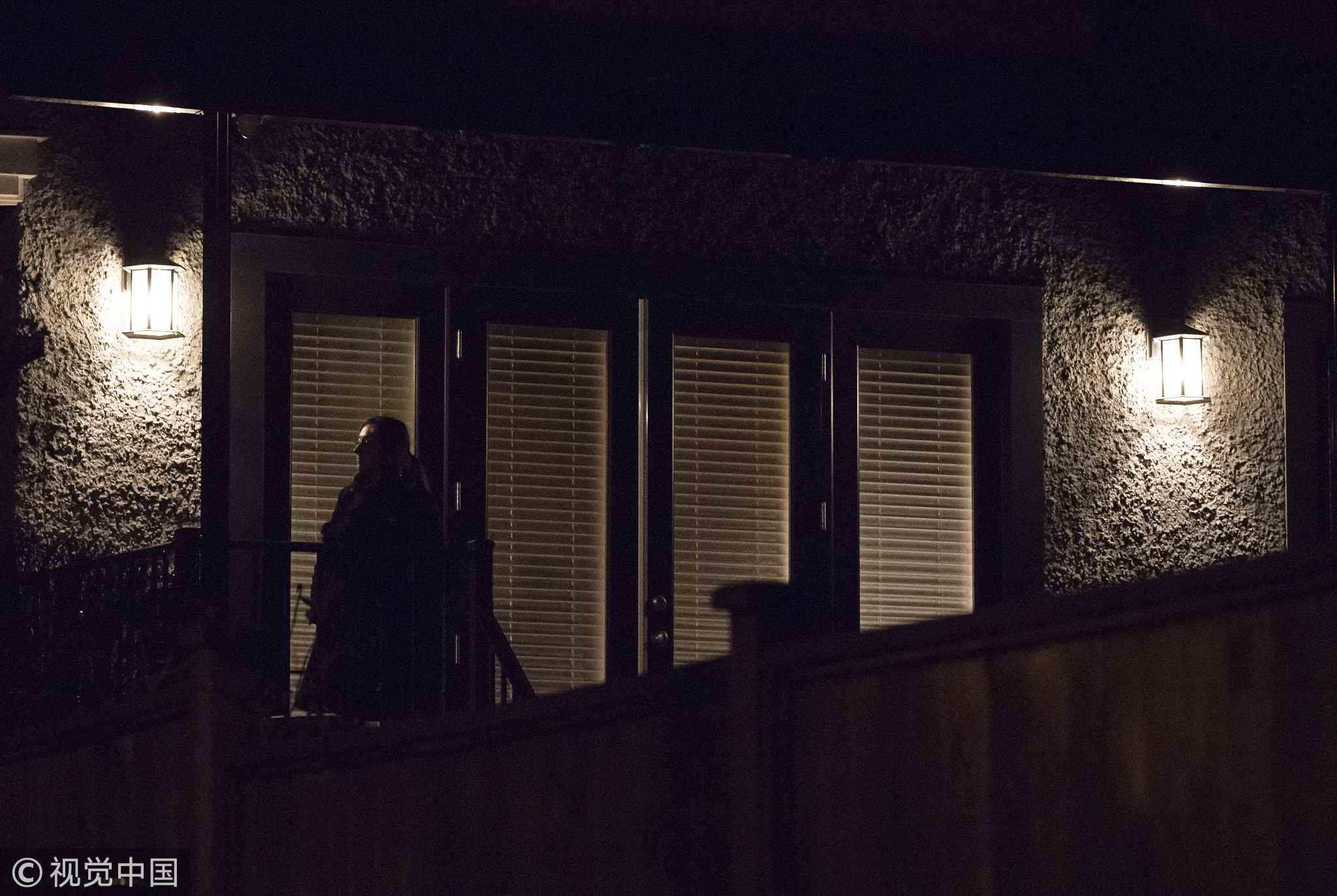
Opinions
18:24, 12-Dec-2018
Opinion: Meng was finally granted bail but a greater battle has yet to come
Updated
17:56, 15-Dec-2018
CGTN

Editor's note: The article is translated from an editorial piece originally published on the official WeChat account of Bullpiano.
At about 3 p.m. local time on December 11, a judge of the Canadian British Columbia High Court granted bail to Huawei's CFO Ms. Meng Wanzhou.
The judge said in the statement that the arrest of Meng was made upon the request of the United States, but the country has not yet formally requested her extradition.
The good thing about the news is that Meng was finally released on bail after 10 days in custody.
However, her release does not spell the end of this dramatic episode, which has gained worldwide attention. A harder battle may have yet to come where all the involved parties will have to fight with all kinds of tactics, both in and outside the court.

David Martin (R), attorney for Huawei Technologies Chief Financial Officer Meng Wanzhou, walks into the court registry following her bail hearing at British Columbia Superior Courts in Vancouver, British Columbia, Canada, on December 11, 2018. /VCG Photo
David Martin (R), attorney for Huawei Technologies Chief Financial Officer Meng Wanzhou, walks into the court registry following her bail hearing at British Columbia Superior Courts in Vancouver, British Columbia, Canada, on December 11, 2018. /VCG Photo
When assessing the current situation and predicting what may unfold next, there are five things to note.
First, we should expect a tougher battle between China, Canada, and the U.S. over Meng's extradition. According to relevant procedures, the U.S. side will file an official extradition request within 60 days of her arrest.
Canada will hold a hearing 30 days after receiving the request. Meng will certainly defend herself and refuse the extradition. We should expect a tug-of-war at the court.
The bail hearing was originally only expected to last a day but was extended twice and ended up stretching over three days. Chances are that the hearing for extradition may be even more complicated, which can last for a few months in the best scenario, or even for years.
Second, what is the implication of this incident for Meng? This event is indeed unexpected. She was detained during an ordinary business trip for no good reason. For people like her, paying bail is no big deal – she has the money. But it matters a great deal if her career was hurt because of it. She may not be able to continue to work as Huawei's CFO, let alone take over Huawei.

A security guard stands outside the back of the home of Huawei Technologies CFO Meng Wanzhou after she was granted bail on December 11, 2018, in Vancouver, Canada. /VCG Photo
A security guard stands outside the back of the home of Huawei Technologies CFO Meng Wanzhou after she was granted bail on December 11, 2018, in Vancouver, Canada. /VCG Photo
Third, this may be just the beginning of an even bigger smear campaign against Huawei. Needless to say, any action taken against Meng is intended to hurt Huawei. The People's Daily commented that the use of all kinds of tricks to contain Huawei has exposed the extremely ill will behind them.
Fourth, the most embarrassing thing for Canada is that Meng was detained at the request of the United States, but the U.S. has been slow to file an extradition request.
The U.S. is right to be cautious. After all, the court needs evidence, and the U.S. would shoot its own feet if it can't provide sufficient evidence. Of course, the U.S. may eventually put forward the extradition request if it wants to, but the world will realize it is just another step taken to contain Huawei.
Such intent would be more obvious when we consider the fact that many other companies, such as Samsung and Ericsson, also have market shares in Iran. So why is Huawei always the only target? No wonder the Washington Post said the action taken by the U.S. authorities was a terrible political mistake and a strategy which couldn't be more stupid.
Finally, Canada is destined to be the biggest loser. The Chinese are not happy about the arrest of Meng, but releasing her certainly irks some Americans. If the extradition request was finally made, Canadians need to weigh the consequences. When Canada's ambassador to China, John McCallum, was summoned, China's Deputy Foreign Minister Le Yucheng remarked that Canadian authorities should stop what they are doing; otherwise, serious consequences will follow and Canada will take full responsibility for the fallout.
The longer the case drags on, the worse it is for Canada. Recently, the share price of Canada Goose has tumbled. If the case remains in limbo for months or even years, many more innocent Canadian enterprises would suffer greater losses.
Canada may have thought that holding a Chinese in custody at the request of the U.S. would not only please the latter but also give it some leverage over China. However, it has turned out to be a hot potato.
(If you want to contribute and have specific expertise, please contact us at opinions@cgtn.com.)

SITEMAP
Copyright © 2018 CGTN. Beijing ICP prepared NO.16065310-3
Copyright © 2018 CGTN. Beijing ICP prepared NO.16065310-3